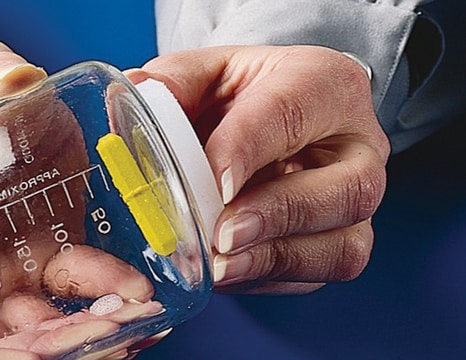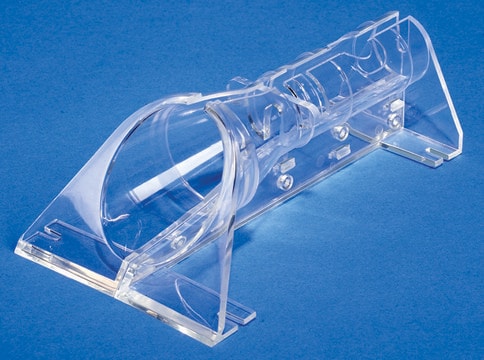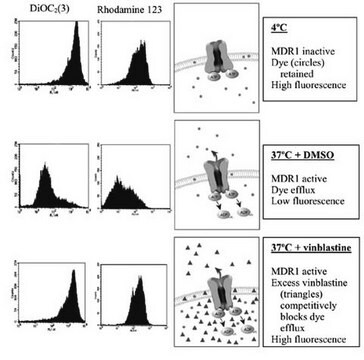MAK161
Multidrug Resistance Assay Kit
(Fluorometric MDR Assay)
Synonym(s):
MDR Assay
Sign Into View Organizational & Contract Pricing
All Photos(2)
About This Item
UNSPSC Code:
12161503
NACRES:
NA.84
Recommended Products
usage
(Fluorometric MDR Assay)
application(s)
pharmaceutical
detection method
fluorometric
relevant disease(s)
cancer
storage temp.
−20°C
Gene Information
human ... ABCB1(5243) , ABCC2(1244)
mouse ... ABCC2(12780)
rat ... abcc2(25303)
Related Categories
General description
Acquired resistance to chemotherapy drugs, multidrug resistance or MDR, is a major contributor to treatment failure for many types of cancers. MDR is typically associated with the increased expression of two ATP-dependent drug efflux pumps, P-Glycoprotein (P-gp or MDR1) and the Multidrug Resistance-Associated Protein (MRP1). These pumps actively expel chemotherapeutic agents, typically hydrophobic amphipathic natural products, from the cytoplasm to exterior of the cell.
This kit is utilizes a hydrophobic fluorescent dye molecule to assess MDR activity in cells. This dye rapidly penetrates cell membranes and becomes trapped resulting in an increase in fluorescence intensity (λex = 490/λem = 525 nm). In cells expressing MDR transporters, the dye is rapidly extruded by the transporters, resulting in decreased fluorescence intensity.
This kit is utilizes a hydrophobic fluorescent dye molecule to assess MDR activity in cells. This dye rapidly penetrates cell membranes and becomes trapped resulting in an increase in fluorescence intensity (λex = 490/λem = 525 nm). In cells expressing MDR transporters, the dye is rapidly extruded by the transporters, resulting in decreased fluorescence intensity.
Features and Benefits
Compatible with high-throughput handling systems.
Suitability
This kit is suitable for the screening of MDR pump inhibitors or for identifying cell lines with high MDR activity.
Principle
This kit is utilizes a hydrophobic fluorescent dye molecule to assess MDR activity in cells. This dye rapidly penetrates cell membranes and becomes trapped resulting in an increase in fluorescence intensity (λEx = 490/λEm = 525 nm). In cells expressing MDR transporters, the dye is rapidly extruded by the transporters, resulting in decreased fluorescence intensity.
Storage Class Code
10 - Combustible liquids
Choose from one of the most recent versions:
Already Own This Product?
Find documentation for the products that you have recently purchased in the Document Library.
Non-coding polymorphisms in nucleotide binding domain 1 in ABCC1 gene associate with transcript level and survival of patients with breast cancer.
Kunicka T, et al.
PLoS ONE, 9(7), e101740-e101740 (2014)
Mechanisms and insights into drug resistance in cancer.
Zahreddine H and Katherine B
Frontiers in Pharmacology, 4, 28-28 (2013)
Drug resistance in cancer: an overview.
Housman G, et al.
Cancer, 6(3), 1769-1792 (2014)
Our team of scientists has experience in all areas of research including Life Science, Material Science, Chemical Synthesis, Chromatography, Analytical and many others.
Contact Technical Service





